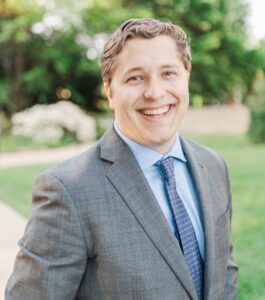
The Substitute Teacher: A Teacher’s Identity Grounded in Loss – Part 2
Abstract:
This is the second part of a collection of poems showcasing the personal exploration of a teaching identity grounded in grief experiences, one of the aspects of identity educators carry into the classroom. The use of poetry permits an open theological exploration in which the author examines aspects of his life through the lens of religious allusions and imagery including the creation narratives, Cain and Abel, and Hannah. Specifically, the author engages the experience of growing up in a family impacted by the death of his brother who died prior to the author’s own birth. The experience of being a “substitute” and a “teacher” is represented within the poetry. The series begins with childhood encounters with loss and moves through life and teaching experiences marked by grief.
Good and Evil: The Second Account of Creation
When I first learned there were two accounts of creation, I was
confused.
Then, I was
delighted.
Maybe this one made more sense.
I can’t remember if this optimism was a default disposition or a performance to please.
Now it’s both.
In the day that the Lord God made my family,
no ambition was yet in my mind
and no anxiety had yet sprung up–
for I didn’t yet know what those words meant,
and there was no teacher there to help.
But a sinkhole would envelop the earth,
and I couldn’t breathe enough to cry–
Then the Lord God formed my faith from the ashes of the dead,
and breathed into my nostrils the breath of new life,
and I became a living being, well, living enough.
And like Adam, such a miraculous origin story couldn’t keep me from ruining everything.
But the Lord God kept busy, planting gardens and putting people in them.
So I likewise kept busy, making more work for myself, too: a research agenda.
I was never good at gardening, so when God went east to garden,
I went west for my formation.
Fortunately, God was there, too.
I tried to be pleasant and good, like the trees and those worthy of affection,
but the tree of knowledge always seemed more appealing to me than the tree of life.
That’s why I ended up in graduate school— the rivers’ pull stronger than I expected.
Now I teach ethics to teenagers and wonder if any of us were supposed to know the difference
between good and evil
in the beginning.
The Ordination to the Professoriate
The Lord closed Hannah’s womb, and her rival mocked her.
Hannah wept and wouldn’t eat.
My parents wept but couldn’t stop eating.
Hannah made a deal with God:
“If you give me a boy, then he will be yours.”
Dad told me his deal was the same.
Eli said she was drunk,
though she was intoxicated only by despair.
I still shiver thinking of the time he was both.
Sure enough, Samuel was born.
And soon they ordained Hannah’s grief.
Grief– the great teacher.
Samuel and I – bargaining chips for the divine.
What will they do when they find out they hired Anxiety disguised as achievement?
Anxiety with a capital A.
Untenable seeking tenure-track.
Ordination is supposed to be a reordering,
and I was always great at following orders,
so it seemed a bit inevitable.
Hannah dropped Samuel off with the priest,
and the bus dropped me off at the megachurch.
“Here I am,” we both muttered.
Leave a Reply